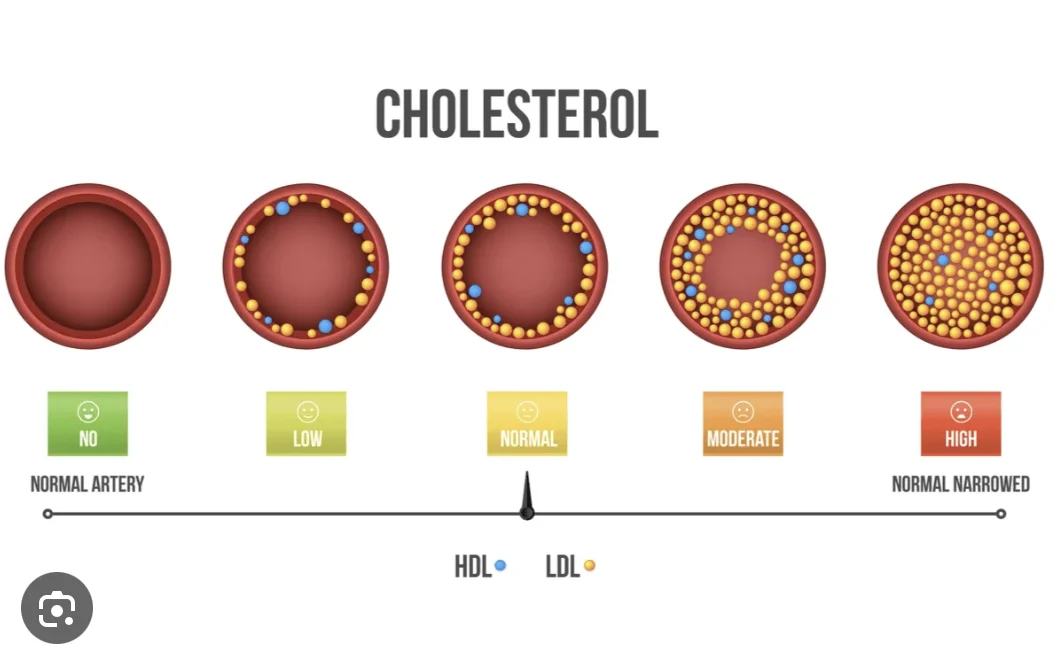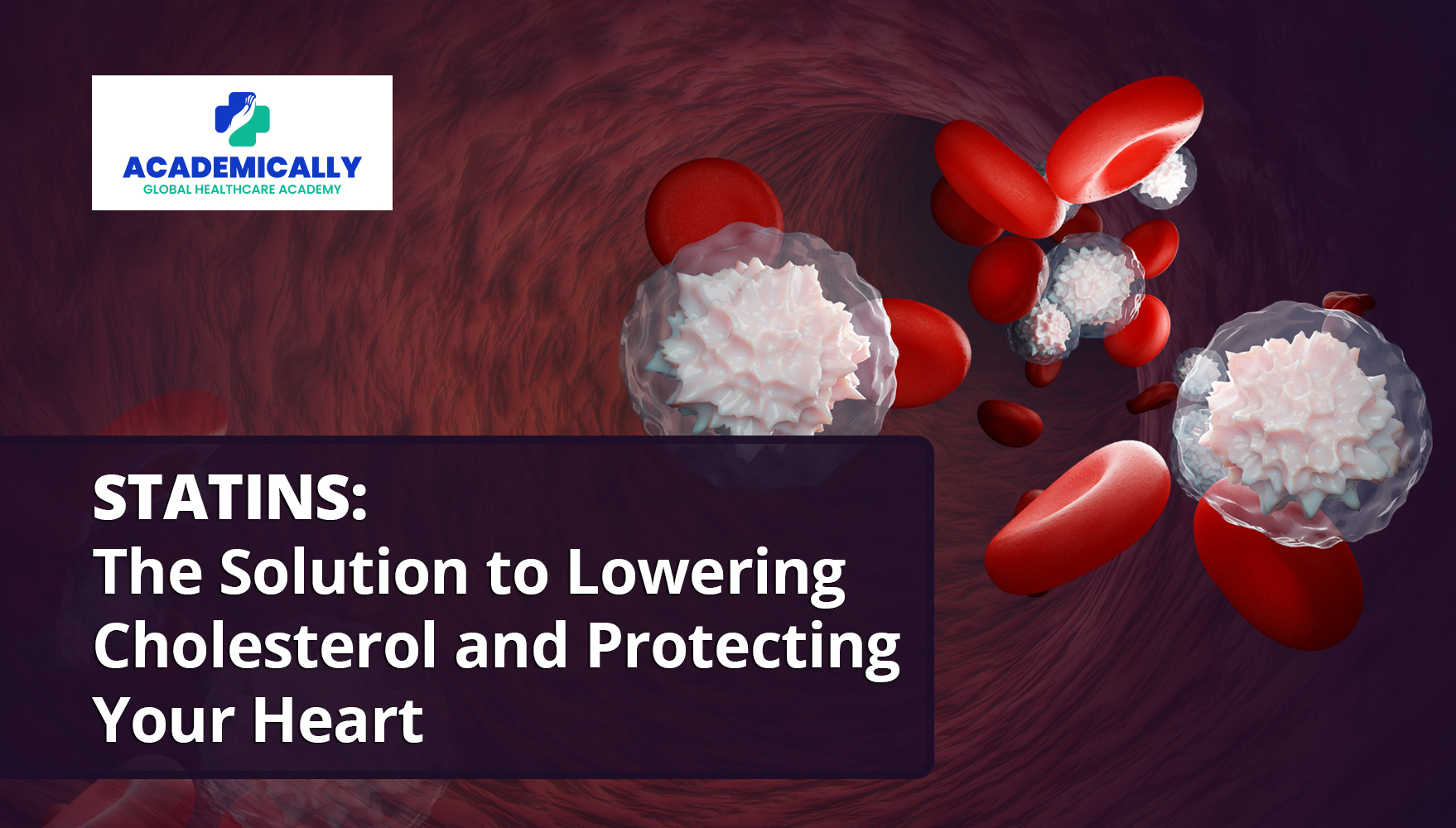What Are Statins?
Statins are a type of medication that helps lower the amount of cholesterol in your blood. Cholesterol is a fatty substance that, in high amounts, can build up in your arteries and lead to problems like heart attacks or strokes. Statins reduce this buildup by blocking a liver enzyme that produces cholesterol, helping keep blood vessels clear and unclogged.
How Do Statins Work?
Statins work by targeting the enzyme in the liver called HMG-CoA reductase, which is responsible for making cholesterol. By blocking this enzyme, statins slow down the production of cholesterol in your body.
In addition to lowering cholesterol levels, statins help the body reabsorb cholesterol that has already built up in the arteries. This prevents the formation of plaque, which can cause blockages that lead to heart attacks or strokes.
Why Are Statins Prescribed?
Doctors prescribe statins to lower the risk of cardiovascular diseases, especially for people who have:
- High cholesterol: Statins are primarily used to treat people with high levels of LDL (bad) cholesterol.
- Heart disease: If you’ve already had a heart attack or are at high risk of one, statins help reduce your chances of having another.
- Diabetes: People with diabetes are at higher risk for heart problems, and statins help reduce that risk.
- Stroke risk: Statins can also help prevent strokes by reducing plaque buildup in the arteries.
Commonly Prescribed Statins
There are several types of statins, each slightly different but all aimed at lowering cholesterol levels. Some of the most commonly prescribed include:
- Atorvastatin
- Rosuvastatin
- Simvastatin
- Pravastatin
- Lovastatin

The Benefits of Statins
Statins offer several important benefits, especially for those with a high risk of cardiovascular diseases:
- Lower LDL cholesterol: Statins are highly effective at lowering levels of LDL cholesterol, sometimes by 30-50%.
- Reduced risk of heart attack and stroke: By preventing the buildup of plaque in the arteries, statins significantly lower the chances of having a heart attack or stroke.
- Protection for those with heart disease: Statins can help people who’ve already had heart problems avoid future issues.
- Preventative care: For those with risk factors like high cholesterol or diabetes, statins offer a preventative approach to avoid serious heart conditions later on.
Potential Side Effects
Like any medication, statins can come with some side effects. However, most people tolerate them well. Common side effects include:
- Muscle pain or weakness: Some people experience mild muscle aches or stiffness.
- Digestive problems: Stomach discomfort, nausea, or constipation can occur.
- Liver damage (rare): In very rare cases, statins may affect liver function, so regular blood tests are usually recommended to monitor this.
If you experience severe side effects, it's important to talk to your doctor, who may adjust your dose or switch you to a different statin.
Who Should Avoid Statins?
While statins are safe for most people, there are some cases where they might not be the best option. For example:
- Pregnancy or breastfeeding: Statins are generally not recommended for pregnant or breastfeeding women due to potential risks to the baby.
- Liver disease: People with active liver disease may need alternative treatments, as statins can occasionally cause liver issues.
- Severe side effects: If you’ve had serious reactions to statins in the past, your doctor may suggest different medications.
Lifestyle Changes to Boost Statin Effectiveness
If you're prescribed statins, making a few lifestyle changes can help improve their effectiveness and further reduce your risk of heart problems:
- Eat a heart-healthy diet: Focus on foods that lower cholesterol, like fruits, vegetables, whole grains, and healthy fats.
- Exercise regularly: Staying active helps improve cholesterol levels and overall heart health.
- Quit smoking: Smoking damages your blood vessels and increases the risk of heart disease, so quitting is a great way to protect your heart.
- Limit alcohol: Too much alcohol can raise cholesterol and affect your liver, so it’s important to drink in moderation.
Conclusion
Statins are a powerful tool in the fight against high cholesterol and heart disease. For those at risk, they provide significant protection against heart attacks, strokes, and other cardiovascular problems. If you’ve been prescribed statins, it’s essential to take them as directed, monitor your cholesterol levels, and combine them with a healthy lifestyle to get the best results.
To learn more about how statins and other medications can help improve your heart health, check out Academically’s other blogs. Our resources and expert insights are designed to guide you through the complexities of medication and healthcare, helping you clear the OPRA Exam for pharmacists in your first attempt. Click here to book a free one on one counselling with our experts.





